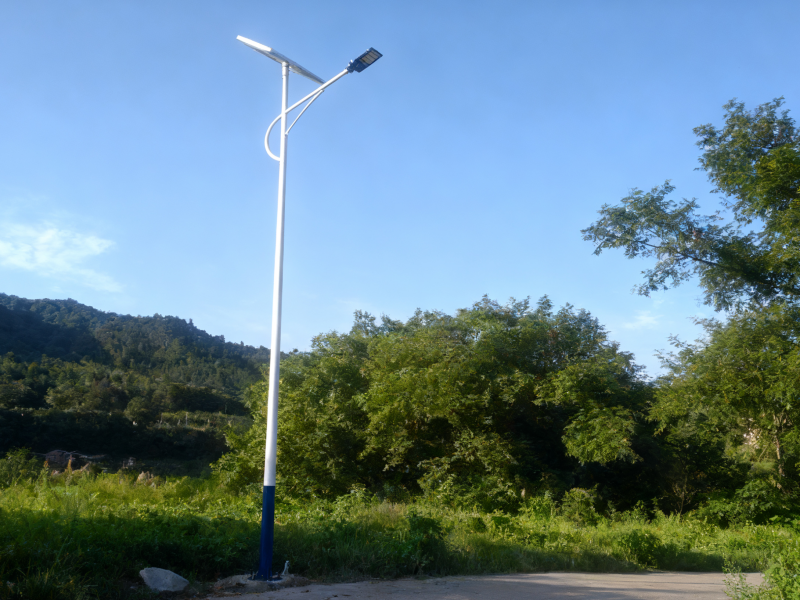When purchasing solar street lights, solar light manufacturers often ask customers for information to help determine the appropriate configuration of the various components. For example, the number of rainy days in the installation area is often used to determine the battery capacity. In this context, lead-acid batteries are gradually being replaced by lithium iron phosphate batteries. They are often considered superior, but what are the advantages of lithium iron phosphate batteries? Here, solar light manufacturer TIANXIANG briefly shares its perspective.
1. Lithium Batteries:
Lithium iron phosphate batteries are undoubtedly superior to lead-acid batteries in all aspects of performance. Currently, the most common type is lithium iron phosphate. Unlike lead-acid batteries, which suffer from a memory effect, they can maintain 85% of their storage capacity after over 1,600 charges. Compared to lead-acid batteries, lithium batteries offer advantages such as lightness, high capacity, and a long lifespan.
2. Lead-acid Batteries:
The electrodes are primarily made of lead and oxides, and the electrolyte is a sulfuric acid solution. When a lead-acid battery is charged, the positive electrode is primarily composed of lead dioxide, and the negative electrode is primarily composed of lead. When discharged, both the positive and negative electrodes are primarily composed of lead sulfate. Due to the memory effect, lead-acid batteries experience a significant decrease in storage capacity after being recharged more than 500 times.
For this reason, many customers highly favor Baoding lithium battery solar street lights. This explains the growing popularity of lithium battery solar street lights.
3. Why Do Most People Choose Lithium Battery Solar Street Lights?
a. Lithium batteries are small and lightweight, saving time and effort for installation.
Currently, the preferred solar street light globally is the integrated type. If a lead-acid battery pack is used, it needs to be buried underground around the light pole in an underground box. However, lithium batteries, due to their lighter weight, can be built into the light body, saving time and effort.
b. Lithium batteries are less polluting and more environmentally friendly than lead-acid batteries.
We all know that lead-acid batteries have a short lifespan. While they are inexpensive, they may need to be replaced every few years, significantly increasing environmental pollution. Lead-acid batteries are inherently more polluting than lithium batteries. Frequent replacement will cause ongoing environmental damage. Lithium batteries are pollution-free, while lead-acid batteries are polluted by the heavy metal lead.
c. Lithium batteries are smarter.
Today’s lithium batteries are becoming increasingly intelligent, with increasingly sophisticated features. These batteries can be adjusted based on user needs and usage time. Many lithium batteries can be equipped with a battery management system (BMS), allowing users to view battery status in real time on their phones and independently monitor the battery’s current and voltage. If any abnormalities occur, the BMS automatically adjusts the battery.
d. Lithium batteries have a longer lifespan.
Lead-acid batteries have a cycle life of approximately 300 cycles. Lithium iron phosphate batteries, on the other hand, have a 3C cycle life of over 800 cycles.
e. Lithium batteries are safer and have no memory effect.
Lead-acid batteries are susceptible to water ingress, while lithium batteries are less susceptible. Furthermore, lead-acid batteries have a memory effect. This occurs when they are charged before they are fully discharged, shortening the battery’s lifespan. Lithium batteries, on the other hand, have no memory effect and can be recharged at any time. This makes them safer and more reliable to use. Lithium iron phosphate has undergone rigorous safety testing and will not explode even in a violent collision.
f. High energy density of lithium batteries
Lithium batteries have a high energy density, currently reaching 460-600 Wh/kg, approximately 6-7 times that of lead-acid batteries. This allows for better energy storage for solar street lights.
g. Lithium battery solar street lights are highly heat-resistant.
Solar street lights are exposed to the sun daily, so they have higher requirements for temperature environments. Lithium iron phosphate batteries have a peak thermal conductivity of 350-500°C and can operate in environments ranging from -20°C to -60°C.
The above are some insights from the China solar light manufacturer TIANXIANG. If you have any ideas, please contact us for more information.
Post time: Sep-10-2025

